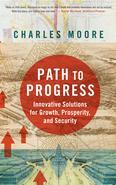As of January 2012, the world held seven billion people, up from five billion just twenty years before. The middle class in China, India, and Brazil is just taking off, which means those countries will desire the same resources Americans currently take for granted. If the rest of the world attempts to consume resources at the same rate as the United States, we would require five Earths. We already know that dozens of toxic chemicals can be found in our bodies of water, in the food we eat, in the air we breathe. Species are disappearing a thousand times faster than normal, and the planet has not seen such a burst of extinction in sixty-five million years, since the dinosaurs disappeared. Islands and nations are already building seawalls to keep out the rising oceans. By the middle of the twenty-first century, it is predicted that fourteen states will experience high or extreme water shortages due to global warming. Since 1982, America has paved, built on, and developed thirty-five million once-rural acres, as much land as is encompassed in New York state. Bruce Katz, vice president and director of the Brookings Institution's Metropolitan Policy Program, notes that between 2007 and 2030, "we will develop another 213 billion square feet of homes, retail facilities, office buildings, and other structures. That's double the amount of space in the United States today." We are living in extraordinary times and are facing enormous challenges and tragedies on a vast scale. We are being increasingly buffeted by high-powered hurricanes, tsunamis, earthquakes, mudslides, wildfires, and acts of international terrorism, while dealing with increasing economic insecurity and growing inequality. A system that cannot deliver the well-being of people and the planet is in big trouble. We can no longer put our heads in the sand. Bold action is necessary, and if the government is too gridlocked or uninterested, then we-as individuals, communities, corporations, and nonprofits-must. My st


